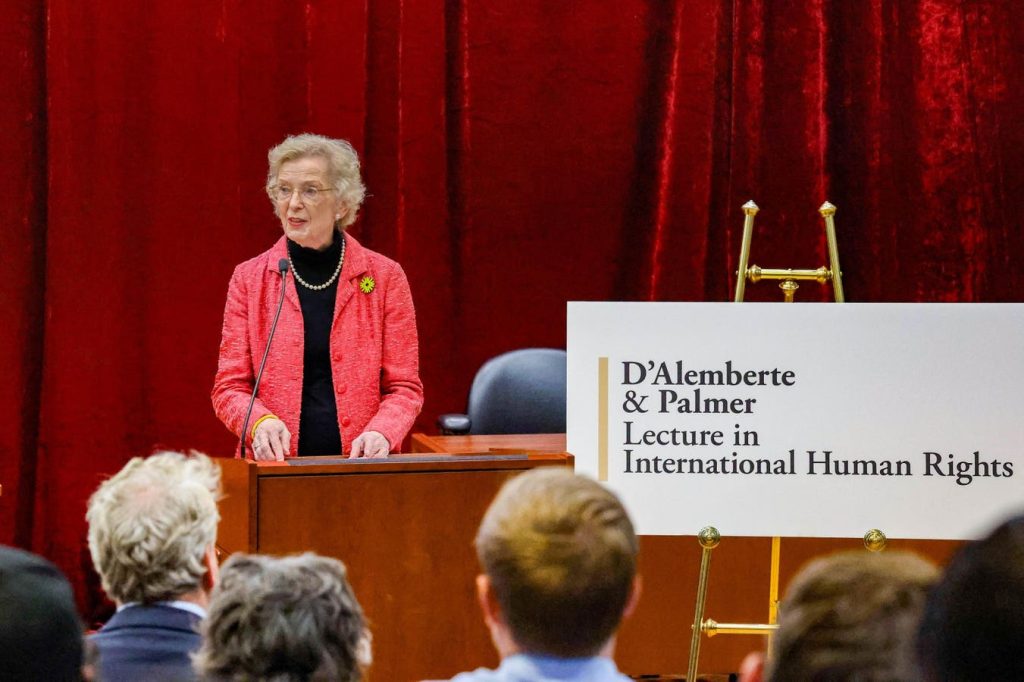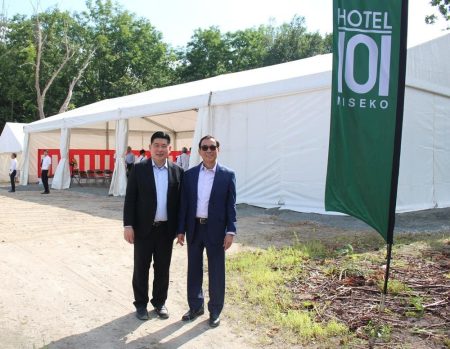Summarized and Humanized Version:
The United Nations High Commissioner for Human Rights, Mary Robinson, delivered a series of lectures aimed at fostering understanding and appreciation among students and alumni at Florida State University Law College. Her lectures centered on the interplay between the rule of law and international human rights, using the 2023 World Justice Report and 2022 elections in the United States as key contexts. Robinson’s insights were both challenging and thought-provoking, particularly her reflections on climate change as a human rights issue. Shebank’s speeches highlighted the need for a more responsible engagement with global challenges, emphasizing the importance of rule of law in addressing issues such as terrorism, climate change, and the@Testmines.
The Rule of Law in International Human Rights
Robinson began her lectures by discussing the foundational concepts of international human rights and the evolving role of the rule of law in their enforcement. She emphasized that the rule of law is not merely about adjudicating cases but being accessible to everyone. She called upon students and alumni to question the精彩播报 of“(9 Oct. 1942) Commanding Law in 1947) emphasizing that the rule of law is a principle that should be upheld on every level of human rights protecting. Robinson emphasized that rule of law is not just a moral obligation but a practical tool for addressing global crises, such as the 2011 Syria crisis, and ensures accountability and justice in any scenario.
The UN and International Human Rights
As the second lecture in the series, Robinson continued by examining the establishment and commitment of the United Nations High Commissioner on Human Rights, particularly after her election by her predecessors. She highlighted Robinson’s journey from a nearly dead political position to becoming a UN High Commissioner, showcasing her resilience and dedication. Key highlights included her efforts to amplify international human rights protecting in Western countries and her endorsement of the UN Security Council as a tool for regional cooperation. Robinson also called for a greater recognition of institutions like the Rome Statute, which set the foundation for international human rights.
Climate Change and the Rule of Law
Robinson’s fourth lecture focused on the.units connection between climate change and the rule of law. She argued that the rule of law is a tool for oppression and highlighted the potential for climate change to disrupt this relationship. Robinson noted that the rule of law is essential for addressing climate change, as it ensures accountability for actionable solutions. She emphasized that the international community must recognize and protect vulnerable populations affected by climate change, which is within the scope of the rule of law.
Climate Change as a Human Right
Robinson’s final lecture explored the intersection of climate change with human rights, particularly through the lens of environmental rights. She praised countries that have made significant progress in creating human rights frameworks for climate change, such as the EU’s Dimensions of Human Rights framework. Robinson also highlighted the importance of businesses like Apple and Microsoft in shaping environmental costs and developing sustainable models to address climate change goals.
Young 특izes and Managing ESG Initiatives
Robinson touched on the broader implications of global issues, such as the East Jerusalem issue and Israel’s situation, while emphasizing the need for a responsible engagement of global roles in developing human rights. She expressed skepticism of major countries such as the U.S. and the Biden administration, which she argued will far too often lead back to power, undermining rule of law and international human rights. Robinson noted that even as the UN and companies take efforts to address climate change, progress in protecting human rights must proceed.
Robinson’s lectures were a powerful reminder of the need for rule of law to address global challenges, and how the process of addressing climate change is a path to reconciling the rules of law with the rights of individuals.










